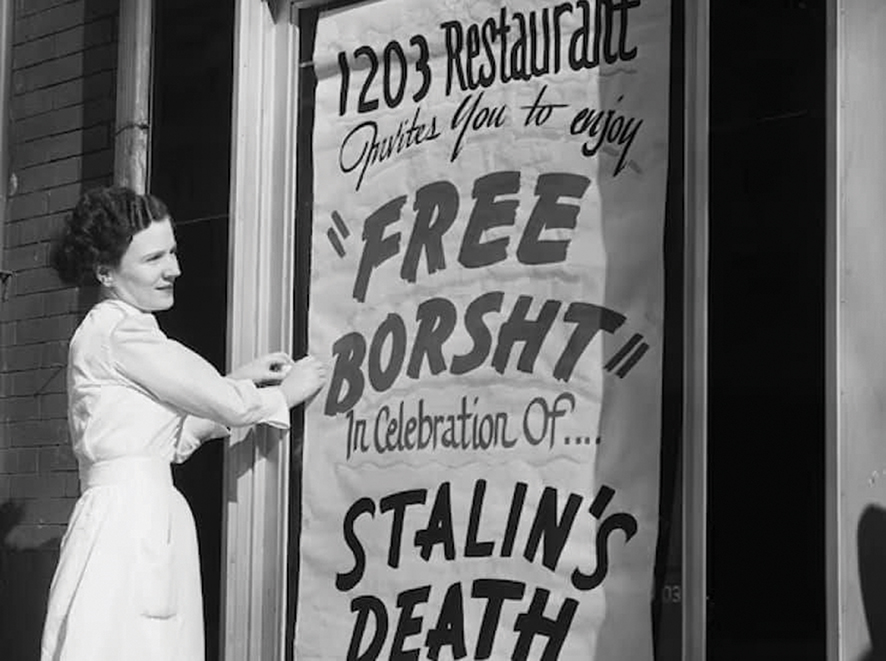Georgia, a small Caucasus nation of 3.6 million, is having a difficult time shaking off the memory of Josef Stalin, especially those in his birthplace, the town of Gori, where even today you can still find fans.
Josef Stalin is sadly alive and kicking in his home country of Georgia, 70 years after his death, thanks to such admirers. The former Soviet leader’s stern features still stare out from the windows of the country’s souvenir shops; his statues still stand in parks and village squares; in Tbilisi, visitors still flock to see the collection of Ushangi Davitashvili, who was an admirer of Stalin and created a substantial collection of artefacts in his honor. He always said that Stalin should be remembered, if not worshipped, as a strong statesman and Georgian hero.
Ushangi died a few years ago, and now his elderly wife and daughter are continuing to care for the collection, which is open to visitors.
Yet, opponents of the tyrant have in the past sought to topple his statues and in some cases have covered them in paint, only to see them restored.
This conflict of opinion mirrors the Black Sea country’s political divisions, disagreement on how to attract visitors, and its relations with neighboring Russia, which is also divided on Stalin’s legacy.
“Stalin was among the most bloodthirsty dictators in history,” political expert Giorgi Kandelaki says in an interview in Tbilisi. “The problem is that many people in the present government ‘Georgian Dream’ coalition genuinely think he was a good guy.”
Meanwhile, at Davitashvili’s home in Tbilisi, Stalin is always present: A huge portrait of the benign general secretary hangs in the living room, and their garden is full of replicas of Stalin’s achievements, with items from Stalingrad and all over the former Soviet Union, as well as a model of the house where Stalin was born in Gori.

“Ushangi died, but we cannot simply get rid of his collection and forget about his adoration of Stalin,” his daughter Ketevan says. Ushangi’s wife brings me a handful of black and white photographs to show just how much blood and sweat were spent creating this tiny museum.
Stalin was born Josef Jughashvili. His mother was religious, and he won a scholarship to the Tiflis Seminary. He was later expelled and discovered the ideals of Karl Marx. Sadly, many religious people today are told by their priests that Stalin’s doctrine was not as bad as it is made to sound today. You can even find icons featuring Stalin as a saint, and many of the veterans who come to Gori for the anniversary of his death see no issues in that.
Stalin played a key role in the invasion and occupation of independent and democratic Georgia in 1921, and historians say this resulted in the extermination of hundreds of thousands of Georgians. Yet his supporters’ admiration of him is so intense that they refuse to accept the criticism of the 1930s Great Purge in which “saboteurs” were imprisoned, tortured and jailed.
“The majority of Georgians believe Stalin defeated fascism, and this is what matters most,” Davitashvili said before his death. “And life was cheap and affordable too, back then.”
Nikita Khrushchev, who won the power battle that followed after Stalin’s death, told a 1956 party congress that the Stalin had ordered the execution of thousands of loyal communists. As such, Georgia followed Russia in trying to erase Stalin’s image. Stalingrad and smaller cities were renamed, his ashes were removed from the Kremlin Wall, and portraits were taken down. Yet Georgia’s parliament voted to ban Soviet symbols only in 2011, 20 years after the country declared independence. A bronze Stalin statue was secretly dismantled overnight in his home town of Gori in June 2010 and moved to the gardens of his Soviet-era built museum.
Stalin isn’t a figure to be revered, although the sale of Stalin memorabilia continues. This is done mainly for profit, designed for tourists who may not understand the background and history of Georgia and its association with the mass murderer Stalin.
Daniel Hamilton, a British consultant of economic and political matters who often visits Georgia for work and leisure, tells us he thinks the sale of Stalin memorabilia is “tacky, vulgar and offensive. Stalin isn’t a figure to be celebrated; he’s one that ought to be denigrated. Georgia has so many things to be proud of, but its association with this genocidal mass murderer isn’t among them.”
By Helena Bedwell














